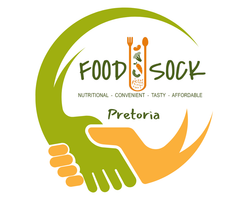FREQUENTLY ASKED QUESTIONS
Please refer back to this page regularly as we answer new questions that are relevant to the Food Sock product range
1.What is the shelf-life of the Food Socks?
Shelf life is currently at 12 months.
The product will last much longer in the correct conditions.
NOTE: It has a shelf-life, not an expiry date.
2. What are the ingredients in each Food Sock?
Although we can’t share the detailed ingredients list, due to Intellectual Property and the fact that a lot of time and money has been invested in the development.
We can however say that they are all soya based products, which contain the following base ingredients:
Pasta, rice, flavorings, stock powders, herbs, spices, dehydrated veggies, pulses and beans.
We do not use mushrooms and nuts – however these are present in our factory.
3. Are the Food Socks Halaal and Vegetarian?
All the ingredients we source are Halaal.
All the rice based meals are Gluten Free and all the meals, other than for Mac & Cheese and Melkkos are also Vegan.
We are Halaal certified through the MJCHT.
Our laboratory testing is done through Mérieux NutriSciences.
4. Do you have a micro-nutrients breakdown?
Yes, they are available on request and is also printed on package label.
5. How do you prepare the Food Socks?
All our Food Socks are prepared in the same manner – they require a pot, water and a source of heat.
Empty the entire contents in a pot, add boiling water as indicated on the packaging and cook until ready.
Some products use beans, these are packaged separately in the Food Sock, and will require boiling first to soften as they take a little longer to prepare.
Some people, if in a hurry, exclude the beans from the pot.
6. Who can benefit from a Food Sock?
Absolutely anyone!!
The poor, the wealthy, the elderly, students, Government, campers, disabled, the single, the married, … the list goes on!
7. Will there be new flavours?
There definitely will be new flavours, in fact, we are always working on new exciting flavours!
8. Can we also buy to donate?
Not only can you, but we would like to encourage you to do so!
Whether it be a creche, one of your employees, or just a family in need, please consider helping them out.
Buying a gift card works great for donations!
9. Can we cook the meals in a microwave?
It can be done, but we recommend it rather be prepared on a stove.
The meal takes about 30 minutes to cook and should be stirred during this time to prevent burning and ensure even absorption of the water.
10. What do the Food Socks weigh?
Rounded off weights – FULL SIZE
Tomato Bredie: 410g
Pasta Bolognese: 350g
Mutton Stew: 445g
Chicken Pasta: 350g
Chicken Breyani: 350g
Chicken and Veggie Soup: 210g
Melkkos: 410g
Mac & Cheese: 410g
Chakalaka Samp & Beans: 500g
11. Why Do Food Sock Meals Carry the Halaal Logo?
At Food Sock Meals, our mission is to provide affordable, high-quality, and flavorful meals that are accessible to everyone, regardless of dietary preferences or cultural backgrounds.
As part of this commitment, our products are proudly certified Halaal by the Muslim Judicial Council Halaal Trust (MJCHT), ensuring they meet the strict standards of Halaal compliance.
This certification allows us to cater to a diverse customer base while maintaining the highest standards of food quality and inclusivity.
12. The Evil Weevil: Keep Your Pantry Pest-Free
A long-forgotten bag of flour could be alive with insects chewing and burrowing their way through your pantry.
Weevils, beetles, and moths often enter homes through infested food, requiring thorough management despite being more annoying than dangerous.
How to Play Keep Away
Inspect Food: Always check for signs of insects and ensure packaging is intact before purchasing.
Transfer Storage: Move long-stored food into containers with tight-fitting lids. Optimal Conditions: Keep food in cool, dry places, and refrigerate or freeze for longer storage.
An effective method is to store rice and grains in the freezer for 3-4 days, which kills any weevils present.First In, First Out:
Use older packages before newer ones to minimize the risk of infestation.
Insects are a natural part of the environment, and reducing chemical use in food production means occasional infestations are inevitable.
Practicing good storage and cleanliness habits can help keep these pests at bay.
